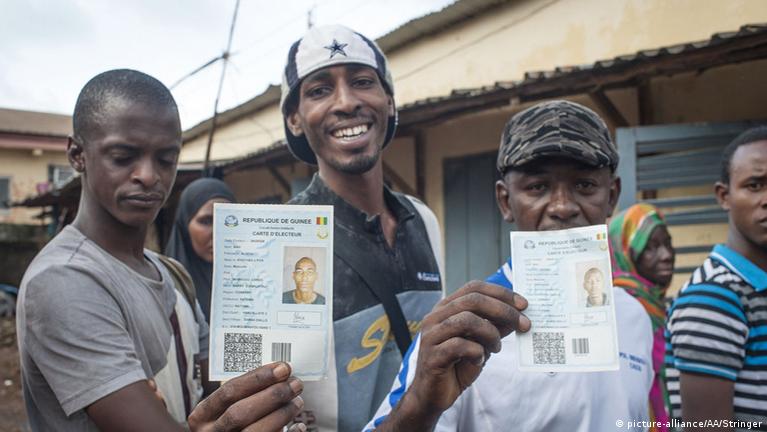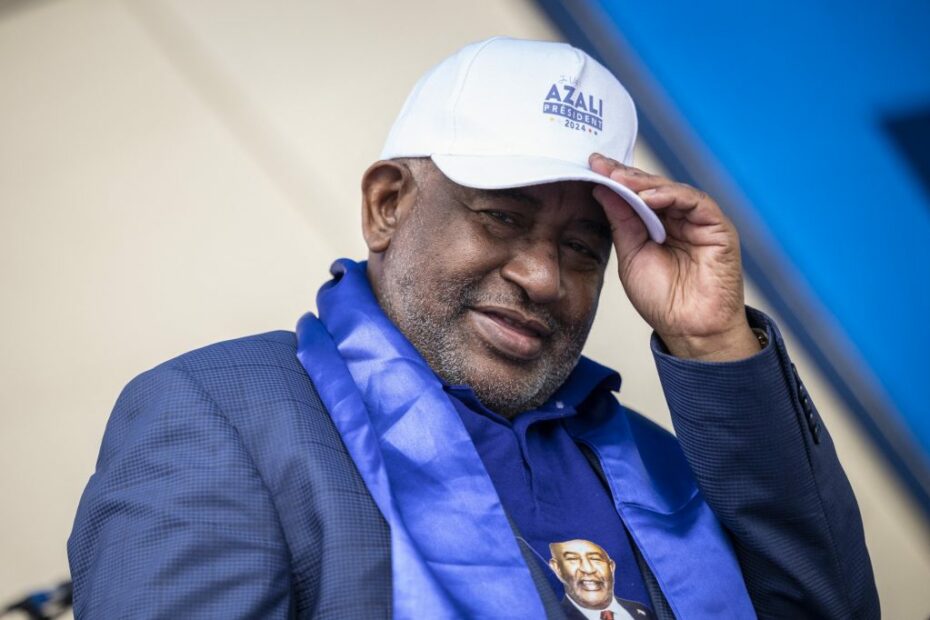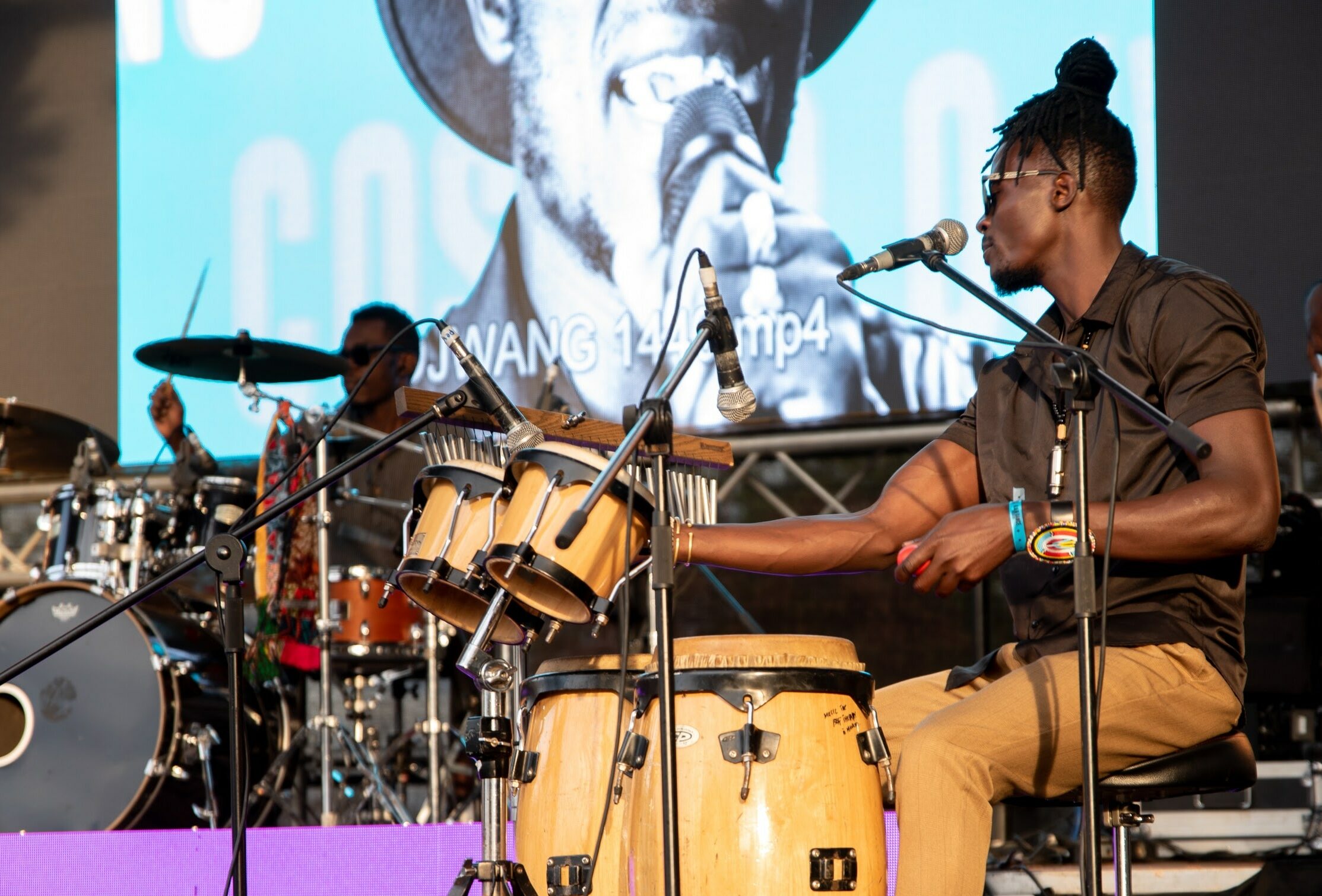Comoros Election Contention is on after Comoros President Azali Assoumani secures a disputed fourth term in an election labeled as “fraudulent” by the opposition. Despite winning with 63% of the vote, the low 16% voter turnout, attributed to an opposition boycott, raises concerns. Opposition candidates allege ballot stuffing and early poll closures, denied by Assoumani’s campaign. International observers note irregularities but describe the overall voting process as largely free and fair. The president, who came to power through a coup in 1999, faced controversy after a 2018 referendum removed term limits. Accusations of political repression have marked his rule, and he currently serves as the African Union’s chairperson.
Why the Uproar
Africa’s 2024 election season kicked off on an alarming note with President Azali Assoumani’s controversial re-election in Comoros. However, it sparked violent protests in the capital, Moroni. In response, the government imposed a night-time curfew and deployed the army. However, the UN Commissioner for Human Rights urged restraint. The five losing presidential candidates declared an “insurrectionary situation,” fueled by indignation among young people over perceived election rigging. With only 16.3% voter turnout, Assoumani’s mandate rests on the support of just 33,209 citizens. The Comoros Election Contention has prompted nationwide protests called for January 19.
Low Voter Turnout in Comoros Election Contention

The election body offered numerous excuses, such as tropical cyclones and general voter apathy, to explain the low turnout. However, the simultaneous vote for three island governors saw an average turnout of over 50%. Thus raising concerns about confidence in President Azali Assoumani and the election’s integrity. Some suspect potential vote manipulation, especially given the contradicting figures provided by CENI. Opposition parties had called for a boycott, reflecting widespread scepticism about a predetermined electoral process. While AU and Francophonie mission reports acknowledged peaceful polls, the five losing candidates strongly rejected the AU assessment. They accused AU of complicity in the alleged rigging.
What Next for the Opposition in the Comoros Election?
The opposition has expressed its intent to take the matter to court. This is aimed at “ending this masquerade” that violates the Comorian people’s sovereign choice. However, there is little optimism that the Supreme Court, widely perceived as serving President Azali Assoumani’s interests, will provide a fair resolution.
Azali Assoumani’s democratic credentials are under scrutiny, considering his controversial political history. Rising from army chief to seize power in a military coup in 1999, he stepped down in 2002 under international pressure. However, he returned after winning contentious elections in 2016. A 2018 referendum extended the presidency to two five-year terms. Which scrapped the rotational system among the nation’s islands that had quelled separatist crises since 1999.
Assoumani’s amendments reset the clock, allowing him to secure another five-year term in 2019. Following his recent victory, he is poised to stay in office until 2029. This marks a total of 20 years over five terms. His current term has been marked by dissent crackdowns, curtailed press freedoms, and an intimidating atmosphere for journalists. In the end, this caused widespread self-censorship. The Africa Center for Strategic Studies highlights regular bans on demonstrations and threats and detentions of opposition party members by the police and army.
The AU’s election observation mission issuing a non-committal interim report
Liesl Louw-Vaudran, Senior Adviser on the AU for the International Crisis Group, emphasized that the AU must play a more proactive role in preventing coups. He mentioned promoting fair elections and enhancing election monitoring. She critiqued the AU election observation report for not adequately addressing significant issues. The issues include substantial differences in voter turnout between the presidential and governor elections, which raised concerns.
Louw-Vaudran highlighted key aspects omitted from the report, including the dispute over granting the diaspora voting rights. This could have had a significant impact, and the controversy surrounding the dismissal of the Supreme Court head before the polls, as the court has the final say on election fairness.
Additionally, she pointed out the inconsistency in President Azali Assoumani’s actions. Despite chairing the AU in 2023 and advocating for democratic rule post-coups in Niger and Gabon, he has won three consecutive terms. Louw-Vaudran suggested that even if the constitution allows a third term, a good Democrat should step aside and provide opportunities for others.
In the context of Comoros, with its diverse island cultures and a history of 21 coup attempts since gaining independence in 1975, manipulations in the electoral and political process, along with the centralization of power, pose significant risks. The region is witnessing an increase in coups, often triggered by leaders employing cynical tactics to extend presidential term limits.



